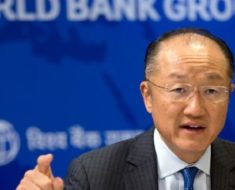While many in the financial world remain skeptical or even outright hostile toward cryptocurrencies, others take a much more brighter view of them. Among the latter is a pair of prominent futurists. One of the two is Thomas Frey, who says that cryptocurrencies will replace 25% of fiat currencies by 2030.
Frey, who is scheduled to speak about cryptocurrencies at the U.S. Federal Reserve later this year, believes that cryptocurrencies are not going anywhere, in spite of the gloomy predictions of some. He says the reason that they will not only survive but also thrive is that they are so much more efficient than fiat currencies.
Another futurist bullish on cryptocurrencies is Dr. James Canton, who works for the Institute for Global Futures. Canton sees cryptocurrencies as a legitimate new asset class that represents a new global economy. He further says that he expects a plethora of new investment opportunities to arise in the realm of cryptofinance in the coming years. He also says that, while some money will undoubtedly be lost in these ventures, they will also create vast amounts of wealth.
Frey sees cryptocurrencies such as bitcoin as being similar to real estate. He says that, when you sell digital currencies, it is like selling property, only this property exists only in the cloud.
As for the volatility of cryptocurrencies, Canton notes that more traditional investment vehicles, such as bonds and stocks, also have their cycles. Though he does admit that there is more volatility right now with cryptocurrencies, and, because of this, he says that investors must exhibit caution when investing in them.
Frey points to the significance of recent remarks by Christine Lagarde, who is the managing director of the International Monetary Fund. She said that cryptocurrencies could very well in the future displace not just commercial banks but also government central banks. This is because cryptocurrencies remove the need for intermediaries, and the fees they typically charge for these services.
Canton, though, still believes that governments will have a role in this new form of currency, to ensure markets work both fairly and efficiently.
Dil Bole Oberoi






